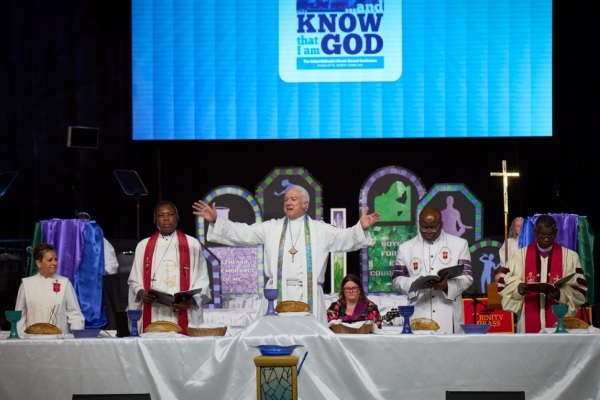The Top 10 Most Fiercely Defended Traditions in Churches
I recently embarked on a major research project for a new resource I will soon be offering. Part of my research included a long review of thousands of comments made on this site over the past few years. Though my research had another purpose, I became intrigued by the comments related to church traditions.

Of course, by "traditions," I am referring to those extra-biblical customs that become a way of life for many congregations. A tradition is neither inherently good nor bad. Its value or its distraction in a given church really depends on how members treat the traditions.
With that in mind, I began noting the most frequently defended traditions in churches. As a corollary, these traditions can also be a potential source of divisiveness. They are ranked here according to the frequency of the comments.
1. Worship and music style. Though I have noted elsewhere that this issue is not as pervasive as it once was, it is still number one.
2. Order of worship service. Thou shalt not change any items in the order of worship.
3. Times of worship service(s). The first three most frequently defended traditions are related to worship services.
4. Role of the pastor. The pastor is to be omnipresent and omniscient. Many church members have clear expectations of what "their" pastor should do.
5. Committee structure. Many congregations continue committee structures long after their usefulness has waned.
6. Specific ministries and programs. The healthy church constantly evaluates the effectiveness of its ministries and programs. That's good stewardship. Other churches continue their ministries and programs because that's the way they've always done it.
7. Location of church facility. A church relocation can be an issue of fierce debate, even contention, in many congregations.
8. Use of specific rooms. Some of the more frequently named rooms are the worship center, the parlor, the gym, and the kitchen/fellowship hall.
9. Business meetings. Traditions include the frequency of business meetings, the scope of authority of business meetings, and the items covered in business meetings.
10. Staff ministry descriptions. Some churches insist on having the same staff positions with the same titles with the same ministry descriptions even though the needs in the congregations may have changed dramatically.
My purpose in writing this article is twofold. First, I thought it might be of interest to church leaders. Second, I hope it can provide a cautionary note for those who are leading change.






















